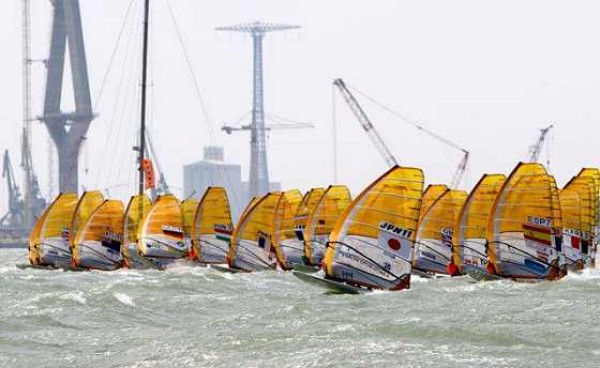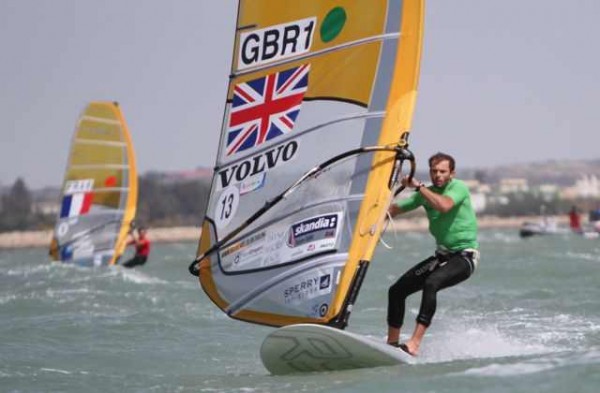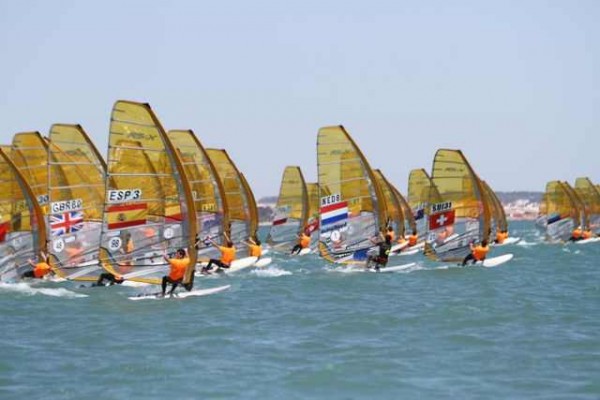We caught up for a skype date with our Olympic hopeful Nick Dempsey, who tells us all about the forthcoming RS:X Worlds, the Olympics, why kitesurfing should never replace windsurfing and more…
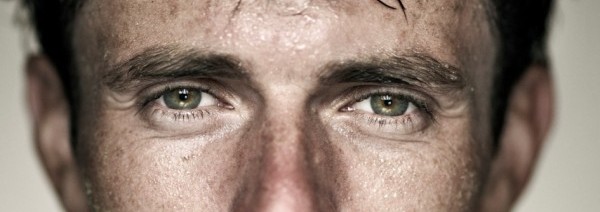
The pinnacle of his career came in 2009 when he won the RS:X World Championships. With many regatta wins under his belt in both the RS:X and the older Mistral One Design class, including Olympic bronze at Athens 2004, he has been the hottest Brit on the scene for over a decade. With every effort set on peaking at the Olympics this summer and his aims to pull off a good result at the upcoming RS:X Worlds, we catch up with Dempsey on what could well be the year of his life.
A DATE WITH DEMPSEY
BOARDS: Hi Nick, firstly, congratulations for the birth of your second son.
ND: Thank you
BOARDS: So what’s the secret, how do you manage to combine your Olympic campaign with raising a young family and has it affected any of your training plans in the run up to the event?
ND: Well if I’m honest, I’m pretty selfish when it comes to my Olympic Campaign. However, I’m very lucky to have such an understanding wife who can see how ruthless and dedicated I have to be. This allows me to really focus on my windsurfing career and as a result this means the family might have to come second at times.
BOARDS: You mentioned to me, just before we started that you took a week out last week for the birth of your son.
ND: Yeh, actually it wasn’t exactly a week out, more just a week away from training in Cadiz. I was still sailing back in Weymouth and only really had one full day off the day my son was born.
BOARDS: Ok for our readers that don’t know, can you tell them your best rankings in previous years and where you are currently placed before we enter the RS:X Worlds, or does it go beyond just numbers?
ND: Yeh, the World rankings are pretty irrelevant, mainly because no one really does all the events. It only ever really matters when all the competitors can make all the events, so yes obviously it’s good if you are ranked number 1 in the World but the events that really matter are the World Championships and the Olympics. On top of that, for me, we decided that the only thing that really matters is performing at home in Weymouth at the Olympic venue. I would always peak for the Sail for Gold regatta or the Olympic test event. So last year I won the Sail for Gold regatta and was second at the Olympic test event. We had a bit of an experimental thing going on at the Worlds, towards the end of last year, in Perth.
BOARDS: So it’s all very much focused towards the 2012 Olympics in Weymouth and making sure you peak at the right times?
ND: Yeh it’s all very much focused towards that, making sure I peak whenever I’m at home in Weymouth is the number one priority, it’s all very well getting results at all the other events, such as Perth, Hyeres, etc.. but when it comes down to it, Weymouth is THE goal.
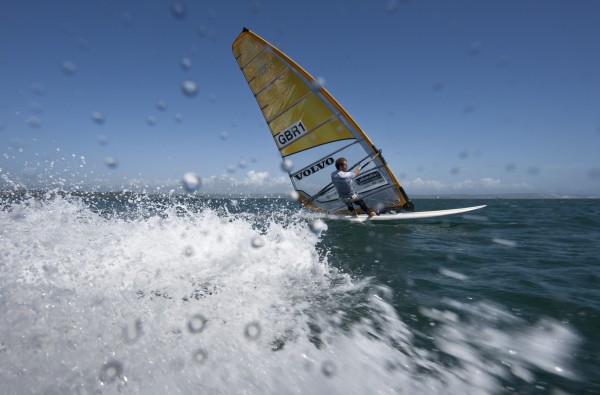
BOARDS: Talking about the Perth Worlds back in December, why do you think you didn’t do so well there and were you worried about Elliot Carney snapping at your heels?
ND: Well we didn’t really train for the event in the right way, we did a lot of strength training, some endurance but it was more about the equipment. I really wanted to test the standard RS:X equipment straight from the box as this is what you get given for the Olympics. So I turned up 2 weeks before the event, took it straight out the box and funny enough it was pretty damn slow in comparison to everyone’s finely tuned gear. They were all there, in Perth, ready to qualify for the Olympics on the gear that they had been training on for months. What I had was so dog slow you wouldn’t even believe it.
BOARDS: So what’s the difference between what comes out the box and your equipment?
ND: No it’s all the same standardised RS:X equipment, but it’s not the same. What I mean is that my best board is one of eight boards that I’ve bought over the years. My best mast is one of eight masts that I’ve tested over the years and my best sail is one of five/six/seven/eight that I’ve bought at the start of the year. You test and test and test and test and eventually come out with the right kit that is all beautifully balanced, pulling in the right place and generally pretty quick. Whereas you turn up and pull something out the box and generally it’s pretty slow. And that’s exactly what happened in Perth.
In the end it goes to show that it’s pretty important to test it, as you turn up at the Olympic Games, get given your kit straight from the box, you go out and test it, realise it’s slow and, you know, you have to sort of deal with it. I wanted to sort of practice that in a semi-pressured environment. Where you can’t just say ‘this kits rubbish, I’m not going to sail, I’m just going to go home’, it’s still the World Championships and you still have to do as well as you can. So it was all about being put under that pressure and practicing on unfamiliar gear before the Olympics.
BOARDS: So just to make it clear, you get given all your kit for the Olympics and you can’t use any of your own that you have been testing?
ND: That’s right. It was the same in China at the 2008 Olympics, but it didn’t really make any difference as we knew there wasn’t going to be any wind. However, at Weymouth it could be quite windy so it suddenly becomes a lot more important.
Click below to be taken to the next page


